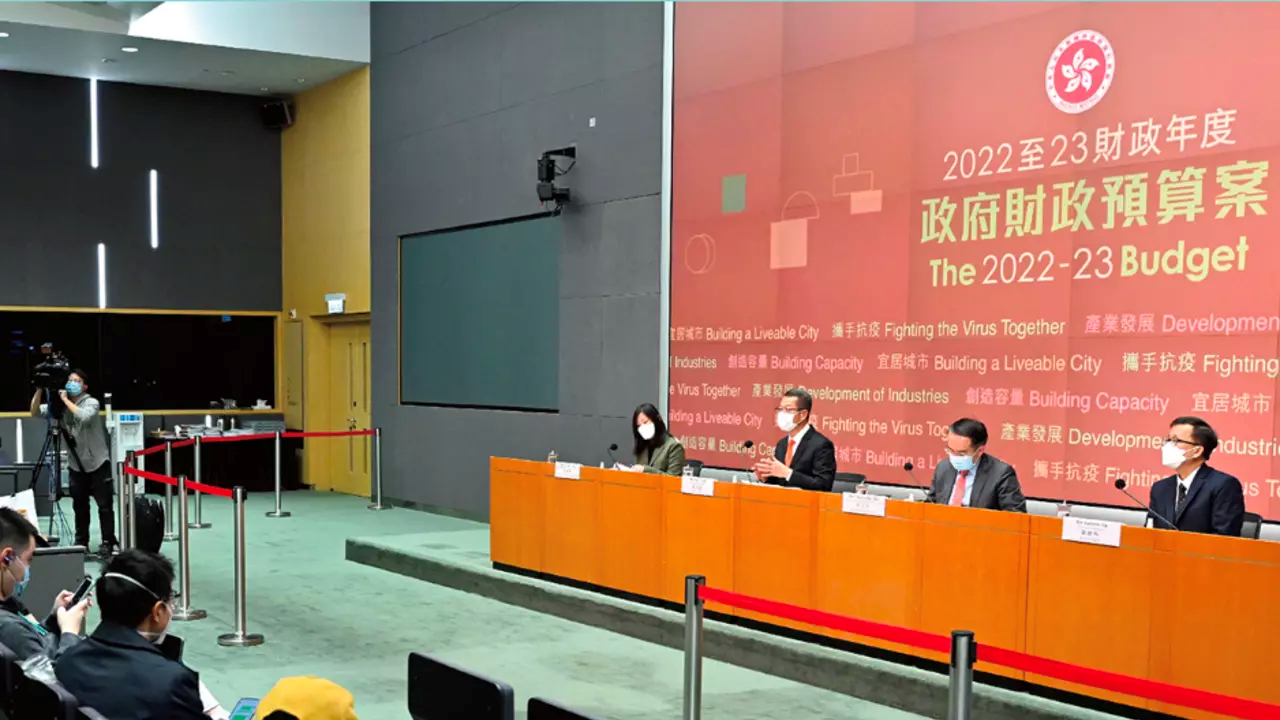Widgetized Section
Go to Admin » Appearance » Widgets » and move Gabfire Widget: Social into that MastheadOverlay zone
Under the dual pressure of the epidemic and customs clearance, Hong Kong’s economic situation is worrying.
The economic situation in Hong Kong, which is still suffering from the pandemic and customs clearance problems, may be worse than expected at the beginning of the year. Paul Chan, the chief fiscal policymaker, sharply raised his deficit forecast for the current fiscal year to more than HK $100 billion, the second highest in Hong Kong’s history, saying that easier cross-border travel was central to restoring economic momentum. Secretary for Medical and Health Lo Hun-mo, who has been opposed to relaxing the quarantine measures, also suddenly changed his rhetoric. Last week, he said that the Hong Kong government was actively considering the “0+7” plan, which exempts visitors from having to stay in quarantine hotels and allows them to stay under medical surveillance for only seven days.
However, both economists believe that Hong Kong should fully open up as soon as possible like other countries, and the implementation of “0+7” next month is still “backward” compared with other countries’ quarantine entry measures. Network commentator Francis leung earlier today (19), according to “0 + 7” mean travelers and business people entry after 7 days still can’t go into restaurants and most of the sites, less attractive, business are expected after the implementation of the “0 + 7”, request further easing, and the script, and to lift “in bed by 冚” (beer) is also the government consider “0 + 7” concerns.
Financial secretary Paul chan, published this year in late February to April’s annual budget speech in March next year, estimates that fiscal deficit for 56.3 billion, but after half a year, he said yesterday in the blog, the economic downturn, the Hong Kong government revenue is expected to than expected, but spending is rising, estimated deficit this year will be more than 100 billion yuan, after the year 232.5 billion yuan deficit of historical records, This means that the government’s financial reserves may be further reduced to the edge of $800 billion. He added that the deficit would be even worse if the $35 billion in proceeds from green bonds to be issued this year were not counted.
He explained that a 26 per cent fall in share turnover and a 37 per cent fall in building turnover between April and August this year could leave stamp duty revenues for the year about a third lower than expected. As a result of the weak property market, land premium revenue, Hong Kong’s second largest source of income last year, has also fallen sharply. In the first five months of this year, land premium revenue accounted for only $17.2 billion, or 14 per cent of the annual budget. At the same time, spending has increased significantly. The estimated deficit of more than $56 billion at the beginning of the year did not include the $43 billion in pandemic support and job protection that was introduced later.
The Financial Secretary concluded that the economic environment in the coming quarters will remain severe. The key to economic improvement is greater control of the pandemic, and the convenience of cross-border transport is the core of restoring economic momentum.


